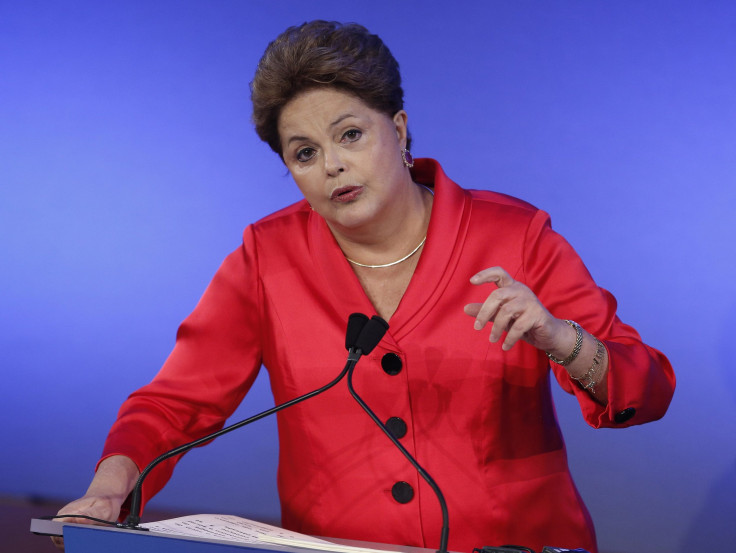Brazil Upset Over Canada Spying On Mines And Energy Ministry; Dilma Rousseff Demands Explanation For Violating Sovereignty

President Dilma Rousseff accused Canada of snooping on Brazil’s Ministry of Mines and Energy in a development that reinforced Brazil’s claims that the country has been subjected to foreign monitoring for “economic and strategic” value and not for reasons of national security.
Brazil summoned Jamal Khokhar, Canada’s ambassador in Brasilia, on Monday to convey the government’s “indignation” over spying by the Communication Security Establishment Canada, or CSEC, and sought an explanation, following a report aired by Brazil’s Globo television network, based on documents leaked by U.S. defense contractor Edward Snowden.
“The fact that the Ministry of Mines and Energy was the target of espionage confirms the economic and strategic reasons behind such acts,” Rousseff said in her Twitter account on Monday morning, as translated by The Globe and Mail. “The report points to Canadian interests in mining. The Foreign Ministry will demand explanations from Canada.”
The report follows a similar revelation in September, when leaked documents showed that the U.S. National Security Agency, or NSA, spied on Brazilian companies, including state-run oil giant Petroleo Brasileiro Petrobras SA (NYSE:PBR).
“The espionage infringes on the sovereignty of nations and the privacy of individuals and enterprises. It is urgent that the U.S. and its allies end their espionage once and for all. It is unacceptable among countries that claim to be partners. We reject the cyberwar,” Rousseff wrote on Twitter.
About 40 Canadian mining companies, with a total value of $4.7 billion in assets, are currently working in Brazil, The Globe and Mail reported.
“Several Canadian companies have shown interest in our country,” Brazil’s Mines and Energy Minister Edison Lobao told Globo. “Whether that means the aim of this espionage is to boost business for certain groups, I can’t say.”
In September, Brazil had demanded a formal apology from the U.S. government over reports that the NSA spied on Rousseff and her Mexican counterpart, Enrique Pena Nieto. And, NSA had earlier denied engaging in “economic espionage in any domain, including cyber,” according to a statement by a U.S. Defense Department spokesman, published on Aug. 30 by the Washington Post.
© Copyright IBTimes 2025. All rights reserved.






















